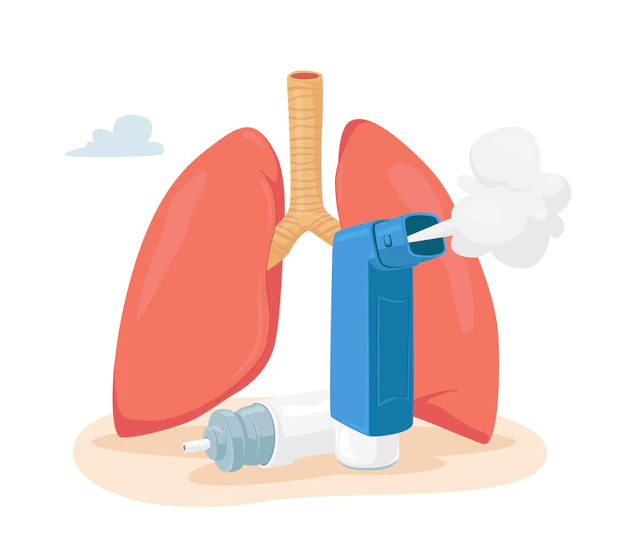Overview of Asthma

Asthma is a chronic respiratory condition that affects the airways in the lungs, causing inflammation and narrowing of the airways. This can result in difficulty breathing, wheezing, chest tightness, and coughing. Asthma can affect people of all ages, but it most commonly develops in childhood.
There are two main types of asthma: allergic asthma and non-allergic asthma. Allergic asthma is triggered by exposure to allergens, such as pollen, dust mites, or animal dander, while non-allergic asthma is triggered by factors such as exercise, cold air, or stress.
Asthma can be managed with a combination of medication and lifestyle changes. Medications used to treat asthma include bronchodilators, which help to open up the airways, and anti-inflammatory medications, which help to reduce inflammation in the airways. In severe cases, oral corticosteroids may be prescribed.
Lifestyle changes can also help to manage asthma symptoms. Avoiding triggers that can cause an asthma attack, such as allergens or irritants, can help to prevent symptoms from occurring. Regular exercise can also help to improve lung function and reduce the frequency and severity of asthma attacks.
It is important for individuals with asthma to work with their healthcare provider to develop an asthma action plan, which outlines steps to take in the event of an asthma attack. This can include taking medication as prescribed, using a rescue inhaler, and seeking medical attention if symptoms do not improve.
In conclusion, asthma is a chronic respiratory condition that affects the airways in the lungs, causing inflammation and narrowing of the airways. It can be managed with a combination of medication and lifestyle changes. Working with a healthcare provider to develop an asthma action plan is important to ensure that individuals with asthma are able to manage their symptoms effectively.
